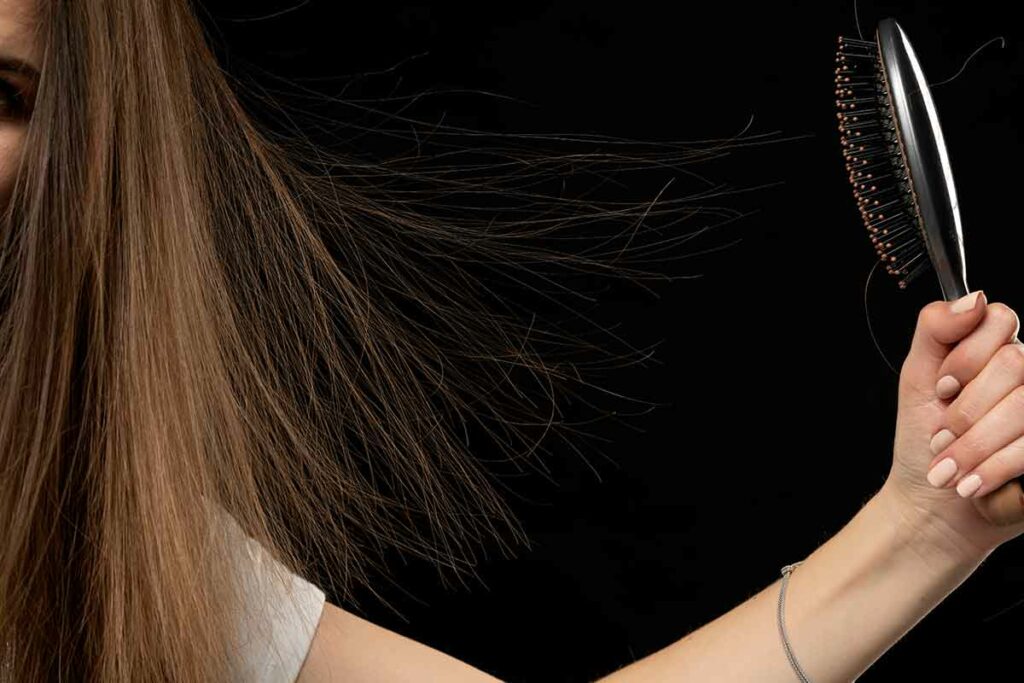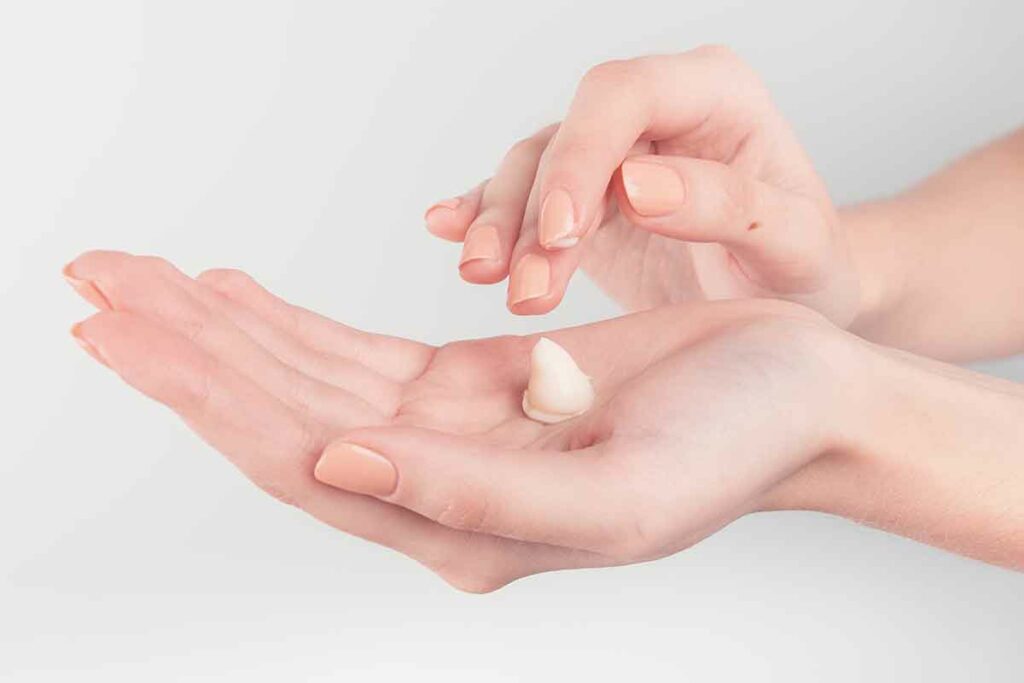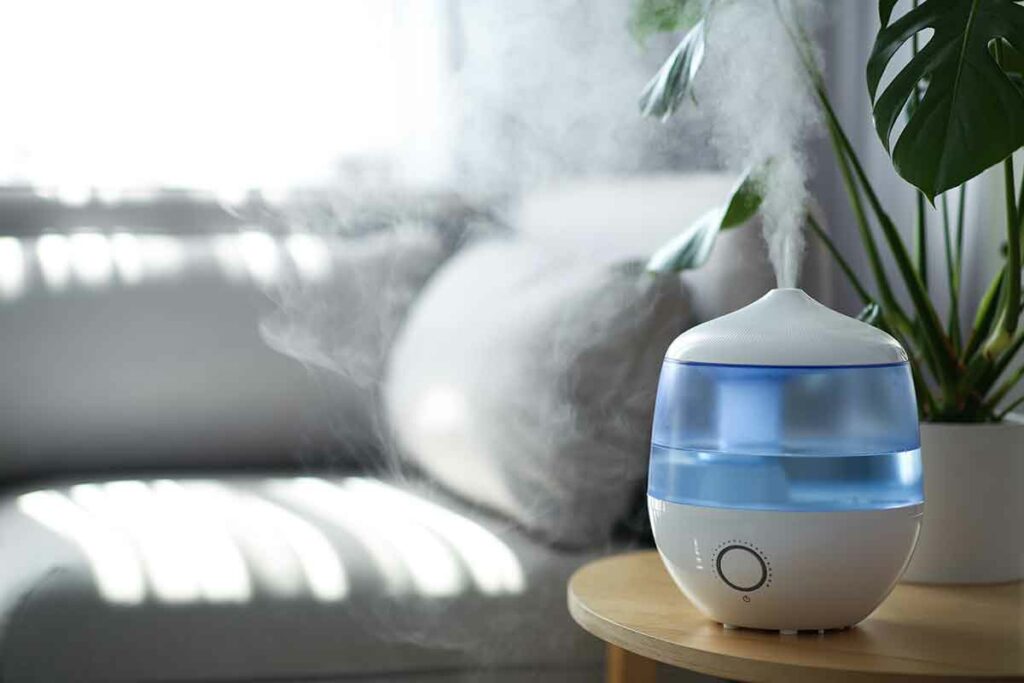Winter weather brings its own unique set of beauty problems.
As soon as the temperature starts to drop, my skin and hair start going a little haywire. Sure, I have my regular issues – don’t we all? – but cold weather seems to make everything worse!
When the winter months arrive, it’s more than just the temperature that changes. With it comes drier air, as the humidity drops. Plus, cranking up the heat to stay warm also means extra dry air inside our homes, too.
What’s all that mean? Well, for most of us, it means the introduction of some winter beauty problems. All those changes in the environment around us can mean changes for us, too.
If you’ve been dealing with changes caused by dropping temperatures, don’t worry. These are pretty common! Many of us experience at least some of these issues. And while they may not be life-threatening or anything, they can be mildly irritating. And there are things you can do to help fix these woes! Sometimes, it just means making a few simple changes or adding a couple of products to your skincare routine.
Read on to see how you can up your beauty routine to deal with winter. From static-filled hair to cracked hands, here’s how to combat those wintery woes.
Related: 6 Self-Care Tips for Winter
Staticky Strands

Fighting flyaways that won’t lay down? With all the cold, dry air blowing around, it can leave you with hair sticking up around your head… which is never a good look! All the extra friction and change in humidity can cause a buildup of negative ions in your hair. Putting on and taking off warm winter hats creates even more friction and really adds to all that static electricity, too.
When static electricity starts building up in your strands, you need to restore your hair’s normal charge, which will help make it less frizzy and easier to manage. Start with a gentle, moisturizing shampoo that caters to dry hair and never skip the conditioner. Every so often –maybe once a week – use a deep conditioning hair mask or other treatment, too. These products will help keep the negative ions at bay.
If you’re still having trouble with static in your strands, carry a travel-size bottle of leave-in conditioner. This way, you can apply a small amount to your hands and run your fingers through your hair when you start having a hard time keeping your flyaways down. You can also apply Static Guard spray to a hairbrush, and then brush your hair with it. Just don’t apply the anti-static spray directly to your head!
Chapped Lips
Dry, chapped lips are annoying at best, and painful at worst. Unfortunately, they are pretty common in the winter. It’s not just the cold, dry weather, either. Sun damage is contributing to your chapped lips. And, each time you lick your lips, it dries them out even further.
First things first, stop using any product that gives you any discomfort, such as burning or stinging. It isn’t a sign that the product is working – it’s a sign that your lips are irritated. The last thing you need to do is irritate your already-chapped lips!
From there, you want to look for helpful ingredients that can help chapped lips heal. Find a product that includes castor seed oil, shea butter, ceramides, cocoa butter, mineral oil, petroleum jelly, and the like. It’s best if the product is also fragrance free, as fragrances or flavors can be irritating. And try to find something with SPF to protect your lips from sun damage!
Apply the lip balm several times a day to keep your lips protected. Apply plenty of lip balm before you go to bed, too. Before you know it, you’ll have smooth, supple lips — even when it’s cold outside.
Dry, Cracked Hands

Hands are exceptionally susceptible to drying out in winter months. That’s because the thin skin on your hands is constantly exposed to the elements throughout the day. On top of that, using hand sanitizer and constantly washing our hands isn’t exactly helping.
To help protect your hands, always wear gloves when you step outside. Leather and other weatherproof materials are obviously best here. And if you find yourself washing dishes or doing other activities that include lots of water, always wear waterproof rubber gloves. This will help keep the moisture from leaving your skin.
Winter is also a time of constant handwashing – go away flu germs! – which can be extra drying on your hands. Make sure that you moisturize your hands after every time you wash them. It’s also worth noting that all that hand sanitizer is definitely not doing your hands any favors, so it’s best to stick with old school soap and water if you can.
Dry, Cracked Feet
Feet are also susceptible to becoming dry and cracked in the winter. Much like the rest of your skin, the lack of humidity in dry air is one of the causes. Feet are already naturally drier than other areas of the body, and dry air makes it much worse. If it gets bad enough, you can even develop heel fissures, which are painful cracks that can even bleed in extreme cases.
At the end of the day, change out of your shoes and socks as soon as you get home. Whether your footwear is wet from snow and rain, or it’s damp from sweat, it’s never a good idea to leave all that on your feet.
After a shower or bath, don’t forget to apply a moisturizing foot cream to help lock in moisture. If your feet are extra dry and cracked, apply a heavy duty foot cream and put on cotton socks before bed. This will help them stay softer and more hydrated.
If you are experiencing extremely painful heel fissures, it is likely time to see a professional ASAP!
Flaky Skin on Your Face

Many facial products contain alcohol, which can be drying to the skin. This is amplified in the winter, when combined with all that cold, dry air. Because the skin on your face is thinner and more sensitive than the rest of your body, the dryness can quickly lead to flaking.
Ditch the dull, flaky skin by removing any skincare products containing alcohol. It’s also a good idea to avoid harsh chemicals like sodium lauryl sulfate and artificial fragrances or colors. Instead, reach for a gentle, alcohol-free cleanser, and definitely don’t skip applying a rich moisturizer. Hyaluronic acid, colloidal oatmeal, aloe, shea butter, and coconut oil are all great ingredients to look for.
If it continues to get worse or you suspect you may have a skin condition, such as eczema or psoriasis, it may be time to see a dermatologist. They will be able to diagnose the problem, and give you the proper cream.
Rough Elbows and Knees
Rough elbows and knees are pretty common and can be exacerbated by dry winter weather. Although we are often self-conscious about the way it looks, it may also come with mild or moderate itching, cracked skin, and more. So, let’s get rid of it already!
Like dry skin elsewhere on the body, you need to focus on keeping dry elbows and knees moisturized. Look for products that include ingredients such as shea butter, cocoa butter, mineral oil, and aloe vera. Moisturizers with humectants, such as hyaluronic acid and glycerin, will help attract moisture, as well.
Rough elbows and knees could be caused by certain fabrics. If you notice that your elbows or knees feel especially dry or rough after coming in contact with a certain fabric, it could be worth looking into. Limit your contact with that fabric and note if symptoms lessen.
Dry elbows and knees can also be caused by underlying skin conditions, such as psoriasis and eczema. If you think this might be the case, check in with a dermatologist for appropriate treatment.
Extra Dry Skin

Slathering on lotion can help dry skin, but sometimes it can only do so much when cold, dry air is constantly pulling the moisture from your skin. On top of that, the heated air coming from the vents in your home is extra drying, too. Your skin could really use a little break!
First of all, skip the extra long, extra hot showers. While it may feel nice after a day in winter temperatures, it’s not good for your skin. Extended periods of time in hot water will strip the “good” oils from your skin that help keep moisture in.
But if you’re really having a hard time keeping dry, itchy skin at bay, it might be time to pick up a humidifier. A humidifier will help restore humidity levels in the air of your home and provide your skin with the moisture it needs. Using a humidifier won’t replace your skincare routine or anything, but using it in addition to regular moisturizer and the other tips here, and your skin will start to feel better in no time!













